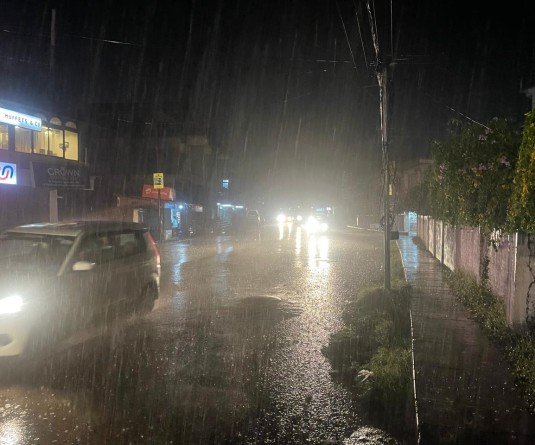
Morung Express News
Dimapur | April 28
Parliamentary Secretary for Taxes and CAWD, Dr Benjongliba Aier today said the implementation of Goods & Services Tax (GST) would bring in a number of benefits for Nagaland including substantial revenue gain for the state, which has always been dependent on central grants and aids.
“This is very important since the state must find ways to increase its internal revenue generation which will boost the ability of the state to spend on developmental works. The state will get additional power to levy and collect tax on services”, the Parliamentary Secretary said.
Aier was addressing an awareness campaign on GST jointly organized by Commissioner of Central Excise & Service Tax, Government of India, Shillong, and Commissioner of Taxes, Government of Nagaland, here at Town Hall on Friday.
Aier also said with the advent of GST, cascading of tax due to multiple layers of taxes would be comprehensively eliminated leading to a fall in the cost production, resulting in traders and industry having more working capital, as seamless input tax credit for the tax paid on previous purchases would be made available.
GST would also benefit consumers in the long run as after elimination of tax cascading, the production cost would fall which in turn would lead to fall of prices in general.
The Parliamentary Secretary further said GST would boost the overall efficiency of the tax system in the state. He said the GST would be supported by a robust IT system which would significantly induce prompt compliance by all the stakeholders and also bring about transparency.
“Added to all these will be the efficient movement of goods. Goods will arrive much faster since transit time will be drastically cut due to removal of commercial tax check post barriers”, Aier said.
Additional Chief Secretary and Commissioner Nagaland, Temjen Toy, in his address dismissed apprehensions that introduction of GST in Nagaland state would have negative consequences and argued that on the contrary the state would be able to generate more internal revenue since GST is “destination based tax.” The commissioner said if Nagaland chose to opt out of GST, the state would not be able to garner any internal revenue as no goods or manufacturer would be able to come to Nagaland.
Toy reminded that presently the state government’s internal revenue is hardly enough to pay two month’s salary of its employees. The Chief Commissioner, Central Excise, Custom & Service Tax, Shilling Zone, SK Panda, meanwhile highlighted the salient features of the GST including benefits to the economy, tax payers, boosting of foreign investment and export and creating a common national market.
Commissioner of Taxes, Nagaland, Asangba Chuba, in his power point presentation said the GST is a game changer for the Indian economy and said states like Nagaland, which are by and large a consumer state, stand a lot to gain as they would receive tax from manufacturers and traders outside the state.
Asangba informed that for smooth transition to GST, the state Taxes Department has fully geared itself to conduct and organize awareness campaigns, workshops, hands on training, walk-in training, mobile support team in all districts to assist the business and trading communities.



